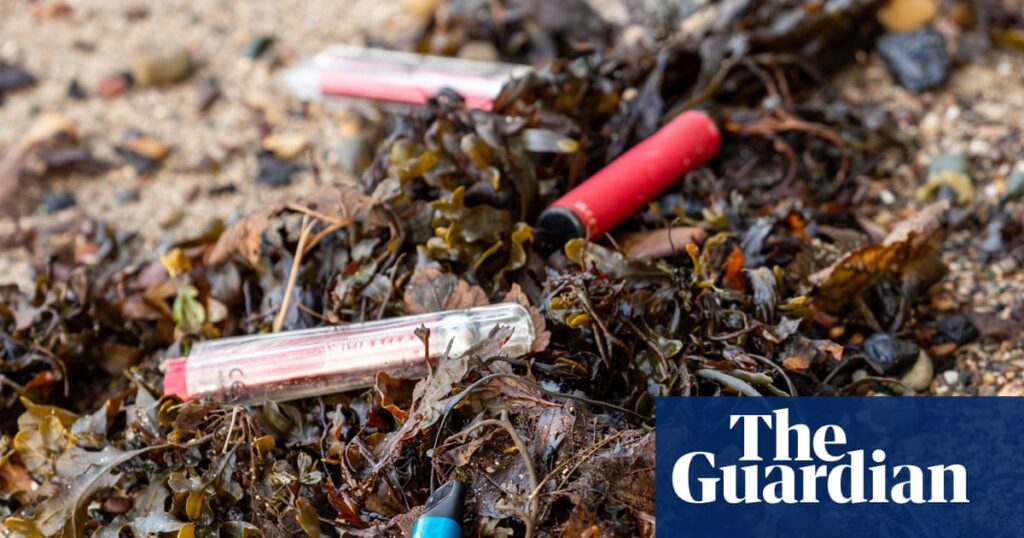Volunteer beach cleaners are finding more vapes than ever before as plastic pollution chokes Britain’s coastline.
The Marine Conservation Society (MCS) on Wednesday launches its annual beach clean, which last year involved more than 15,000 volunteers who completed more than 1,200 litter surveys.
The charity is calling for swift and strong action at the UN’s global plastics conference in Geneva this week, where countries are deciding on their pollution policies.
Some forms of plastic are on the rise, according to MCS litter volunteers. Of those surveyed, 41% mentioned finding more plastic items (including plastic cups, bottle caps/lids, microplastics), including 19% more vapes, 26% more fishing litter (including lines/nets), 11% more dog poo bags and 11% more wet wipes.
But there were some positive findings that demonstrated how good policy can make a difference. Volunteers on the beach cleans log every piece of litter they find so that a comprehensive dataset of rubbish on beaches can be built up and trends observed.
Their research found that the number plastic bags littered on beaches reduced by 80% between 2015 and 2024, after a charge on carrier bags was introduced. The MCS says this shows that policy changes can quickly make a positive difference to the amount of pollution in the environment.
Summer is a bad time for litter on UK beaches. Seventy-four per cent of MCS volunteers said they found an increase in beach litter during the summer, compared with winter months, due to increased visitor numbers plus a gap in public awareness around environmental impacts.
Volunteers who take part in the litter pick have asked local authorities and governments in the UK to build better infrastructure including more accessible bins on beaches.
Litter pickers said the problem was widespread and harming wildlife. Violet Fraser, who has been cleaning beaches on the Western Isles in Scotland, said she had found birds’ nests with plastic in, while Colette Edwards in Norfolk reported regularly finding seals caught in discarded nets on her local beach.
Plastic is a particular scourge on beaches as it does not biodegrade, instead breaking down into microplastics that stay in the environment indefinitely, and these are easily ingested by marine animals and can cause illness and even death.
A spokesperson for the MCS said: “The amount of plastic found on beaches increased by 9.5% between 2023 and 2024. The continued presence of plastics on our coastline highlights the need for a circular economy in which consumers have more options and access to use refillable and reusable products.
“Beachwatch data has already been used by governments across the UK as evidence to introduce litter reducing policy – such as the carrier bag charges and bans on certain single-use plastics, such as straws, cutlery, plates and bowls, and the recent UK-wide commitment to ban plastic wet wipes.”
Isaac Kenyon, a volunteer, said: “There’s something deeply grounding about standing on a shoreline and knowing that your small actions are part of something much bigger. Every piece of litter picked up is one less hazard for wildlife, one less piece of plastic in the ocean, and one small step toward a healthier planet.”
The Great British Beach Clean runs from 19-28 September.

